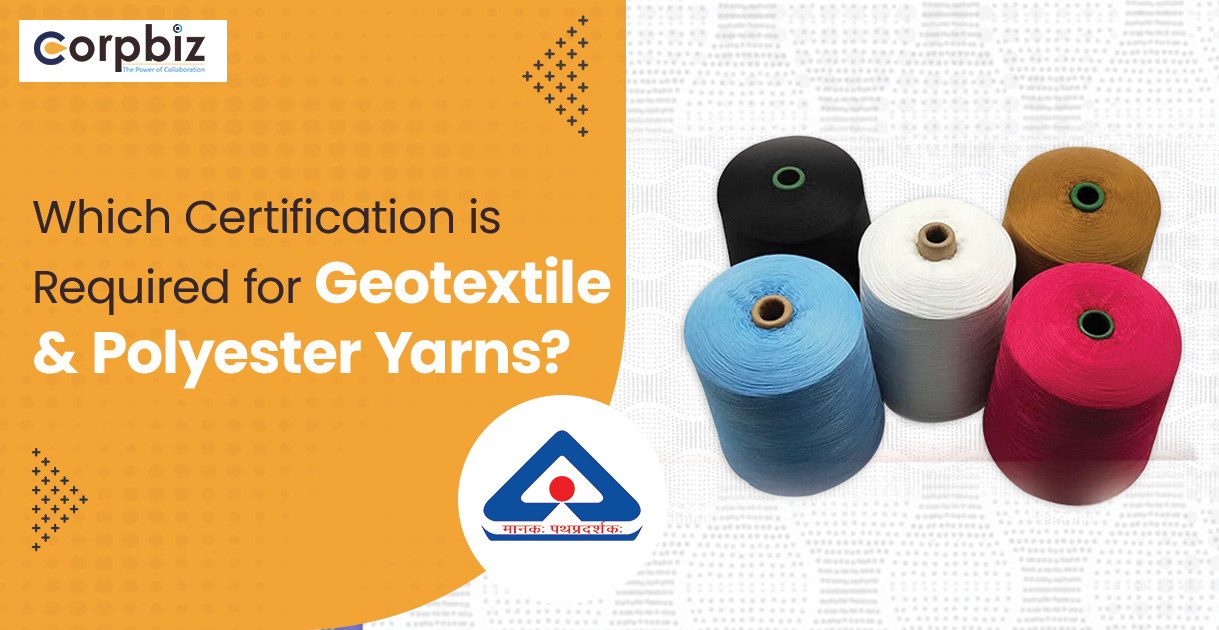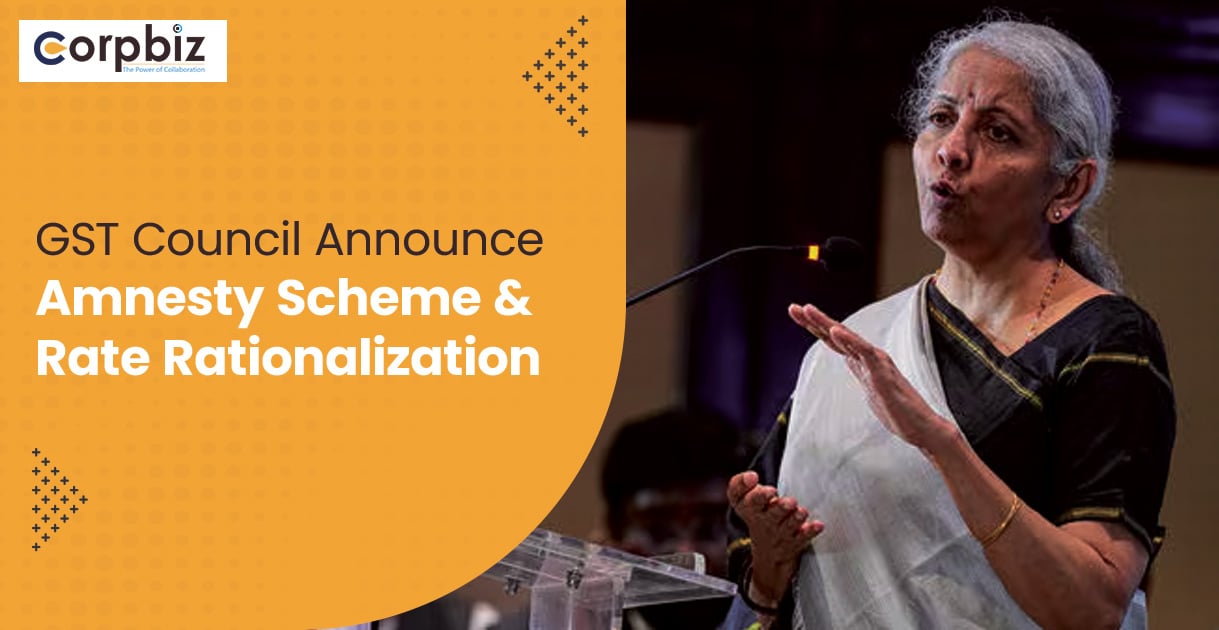Product quality, safety, and regulatory requirements are paramount in today’s fiercely competitive textile industry. Two such critical products are polyester yarn and geotextiles, which have been used in many industries and hence have to be stringently checked for quality and certified accordingly based on the market demand or regulatory requirement.
To ensure their products meet the required quality and safety standards in India, manufacturers must obtain BIS certification for Geotextile & Polyester Yarns. This blog explains the importance of certification for polyester yarns and geotextiles, outlining the certification process, its significance for manufacturers and the benefits of compliance with Indian standards.
Understanding about Geotextiles
Geotextiles are permeable fabrics associated with soil, rock, or any other geotechnical material as an integral part of a civil work, structure, or system. Their fundamental uses include separation, filtration, drainage, reinforcement, and protection. These critical roles in infrastructure projects will make quality and durability necessary for geotextiles.
Why is Certification Needed for Geotextile & Polyester Yarns?
Given their critical applications, geotextiles need to be assured of their quality and reliability. Poor-quality geotextiles are likely to lead to project failures, as well as increasing maintenance or safety expenses. In this regard, certification is vital in ensuring geotextiles’ conformance to the required standards and suitability for the intended application.
Know about the IS 15351:2015 for Geotextiles
IS 15351:2015 is an Indian Standard titled “Geosynthetics-Geotextiles-Strength and Properties”. This standard specifies the requirements for strength properties that geotextiles should meet, which are permeable fabrics associated with soil, rock, earth, or any other geotechnical engineered material.
The standard ensures that geotextiles, on conformation to stipulated strength criteria, become ready for use in various engineering and construction applications like constructing roads, soil stabilization, drainage, erosion control, etc.
What are the Key Elements Addressed in IS 15351:2015?
IS 15351:2015 outlines the essential requirements for the physical, mechanical and performance properties of geotextiles. Below are some of the key elements addressed in IS 15351:2015:
1. Scope
This specification shall cover properties like tensile strength, elongation, tear strength, puncture resistance, and others. The test method shall apply to geotextiles used extensively for separation, filtration, drainage, reinforcement, and protection.
2. Testing methods
This standard describes the methods of tests focusing on the strength properties of the geotextiles. These tests assess the mechanical performance of the Geotextiles, which are meant to be tested, where testing under different conditions to ensure that the geotextiles are durable and reliable for their intended use.
3. Performance Requirements
IS 15351:2015 specifies the minimum requirements of performances that any given geotextile should attain if the geotextile is considered compliant. It includes, among other things, accepted levels for tensile strength and elongation at break and other critical mechanical properties.
4. Applications
The standard shall apply to geotextiles used in various civil engineering works, including road construction, embankment stabilization, drainage systems, and erosion control, provided a geotextile meets these standards.
5. Assurance of Good Quality
Geotextiles will be designed, manufactured, tested, and certified under IS 15351: 2015 to comply sufficiently with the strict demands of quality assurance under different governing conditions. This is important for the long-term performance and safety of a geotechnical or civil engineering project.
What does the Polyester Yarn (Quality Control) Order, 2021 entail?
The Government of India, on April 15, 2021, issued the “Polyester Yarn (Quality Control) Order, 2021,” in collaboration with the Ministry of Chemicals and Fertilizers, through an official Gazette Notification.
In this regard, ‘every product of Polyester Yarn’ shall conform to the specified Indian standard and bear the BIS Standard Mark under a license from BIS. The order relates to the following six varieties of polyester yarn products, each governed by its respective Indian standard:
1. Polyester Continuous Filament Fully Drawn Yarn (FDY)
- Indian Standard: IS 17261:2019
- Title: Textile – Polyester Continuous Filament Fully Drawn Yarn – Specification
2. Polyester Industrial Yarn (IDY)
- Indian Standard: IS 17264:2019
- Title: Textile – Polyester Industrial Yarn – Specification
3. Polyester Partially Oriented Yarn (POY)
- Indian Standard: IS 17262:2019
- Title: Textile – Polyester Partially Oriented Yarn (POY) – Specification
4. Polyester Staple Fibers (PSF)
- Indian Standard: IS 17263:2019
- Title: Textile – Polyester Staple Fibers – Specification
5. Polyethylene Material for Moulding and Extrusion
- Indian Standard: IS 7328:2020
- Title: Specification of Polyethylene Material for Moulding and Extrusion
6. Styrene-Butadiene Rubber Latex
- Indian Standard: IS 11356:2020
- Title: Styrene-Butadiene Rubber Latex – Specification
Objectives of the Polyester Yarn (Quality Control) Order
The main objectives of the Polyester Yarn (Quality Control) Order are stated below:
1. Enhancing Quality
Enhance the common or overall quality of the products of all polyester yarn to be offered in the Indian market, making them all complaint regarding the stringent Indian standards.
2. Reducing Defects
It reduces the defects shown by polyester yarn, which tend to degrade the quality of the final product applied in the textile industry.
3. Protecting Consumers
Ensuring that all goods sold to Indian consumers do not bear direct or latent harmful defects and are manufactured to a high standard.
Implications of Non-compliance
All polyester yarn merchandise produced, imported, or marketed in India must comply with the mandatory provision in the Polyester Yarn (Quality Control) Order, 2021. Products not conforming to specified standards and not carrying the BIS Standard mark will be treated as illegal for sale in the Indian market.
Any person or organization found violating the provisions of this order will be liable for action under the relevant provisions of Scheme I of Schedule II of the BIS Act.
Challenges in the Certification for Geotextile & Polyester Yarns
The certification process for geotextiles and polyester yarns involves navigating stringent testing, regulatory compliance and documentation requirements can pose significant hurdles for manufacturers aiming to meet BIS standards. However, below are some of the common challenges faced by the manufacturer in obtaining certification for Geotextile & Polyester Yarns
Stringent Testing Requirements
Complying with prescribed rigid testing standards can be challenging and involves considerable investments in testing facilities and equipment.
Documentation and Compliance
Detailed documentation and the frequent updating of standards require an appropriate level of investment in resources and expertise.
Factory Inspection
It is time-consuming to keep the factory always ready for an inspection since any non-compliance will delay the overall certification process.
Technological Adaptation
Resources have been consumed quickly to keep up with changing technologies, making adaptation to meet changing BIS standards resource-intensive.
Cost Implications
Certification is rather expensive due to testing, documentation, and compliance requirements that cost a lot, especially for small manufacturers.
The Final Words
The certification under BIS assures that the quality of polyester yarns and geotextiles in India meets set norms, harnesses safety in use, and meets regulatory requirements. Apart from assuring the product’s reliability in the consumers’ minds, it also provides a competitive edge to the manufacturers in the market because their products are made according to national standards. Obtain your BIS Certification for polyester yarns and geotextiles in India effortlessly by visiting our website corpbiz and meet the highest quality standards today.
Frequently asked Question
Why is BIS Certification important for Polyester Yarns and Geotextiles?
The Bureau of Indian Standards (BIS) certification is regarded as a quality and safety certification. It ensures that polyester yarns and geotextiles comply with relevant Indian standards and becomes crucial in assuring product reliability and market competitiveness beyond mere compliance with regulatory requirements.
Which standards apply to the Polyester Yarn (Quality Control) Order, 2021?
The Indian standard for which the Polyester Yarn (Quality Control) Order, 2021 is applicable includes
IS 17261:2019 for Polyester Continuous Filament Fully Drawn Yarn,
IS 17264:2019 for Polyester Industrial Yarn, IS 17262:2019 for Polyester Partially Oriented Yarn,
IS 17263:2019 for Polyester Staple Fibers,
IS 7328:2020 Polyethylene Material, and IS 11356:2020.What are geotextiles, and why do they need to be certified?
Geotextiles are permeable textile materials applied in civil engineering projects for reinforcement, separation, filtration, drainage, and protection in various infrastructure projects. The certificate ensures that the material used for such applications effectively meets the specified strength and durability that it claims.
What does IS 15351:2015 cover for geotextiles?
IS 15351:2015 specifies requirements for geotextiles, such as tensile strength, elongation, tear strength, and puncture resistance, ensuring suitability in engineering and construction.
What are the objectives of the Polyester Yarn (Quality Control) Order, 2021?
This order aims to increase the overall quality of polyester yarn products, reduce defects, and safeguard consumers by guaranteeing stringent Indian standards for every product put on the market in India.
What are the penalties for non-compliance with the Polyester Yarn (QCO, 2021)?
Polyester yarn products cannot be legally sold in India. Violators could be liable for legal action under the BIS Act, as products must bear the BIS Standard Mark to be sold in the Indian market.
What exemptions apply to BIS certification for polyester yarns?
Products or items exclusively for export are exempt from the requirement of compulsory BIS certification and the ISI mark.
What problems arise while applying for certification for polyester yarns?
Some challenges are meeting very stringent requirements for testing, documentation, factory inspections, adapting to new technology, and having huge cost implications, especially for small manufacturers.
Read Our Article: Certification is Required for Steel Wire for Umbrella Ribs











